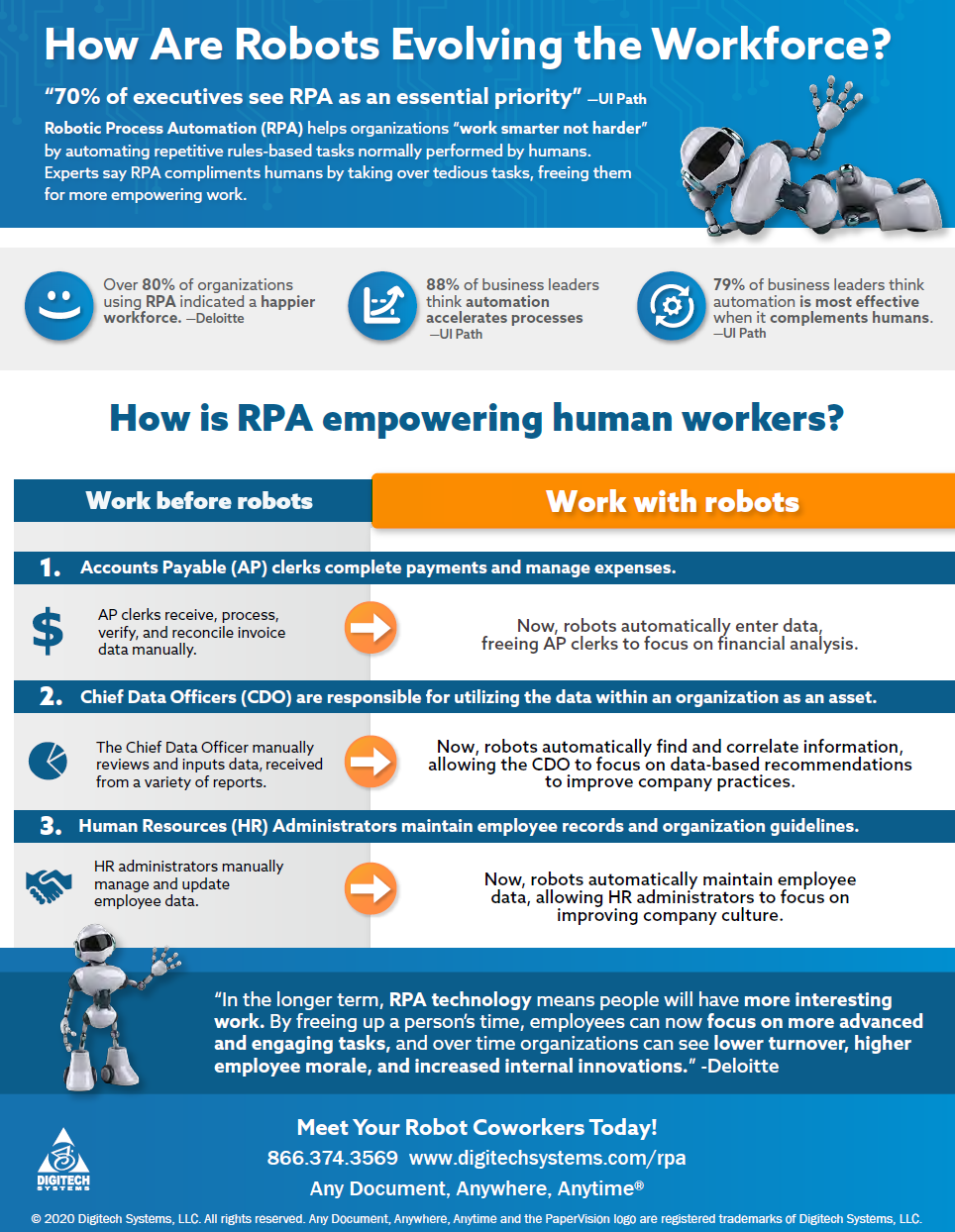As organizations look to reduce costs and speed up business processes, many are looking into Robotic Process Automation (RPA). However, many workers are left wondering if their job is in trouble. How are robots evolving the workforce, and what does that mean for knowledge workers?
RPA technology uses ‘bots’ to automatically extract and enter data from documents, like invoices, into your other line–of–business (LoB) software, like accounting applications. This helps organizations improve processes and save money by reducing the errors caused by manual data entry, while avoiding bottlenecks. According to UI Path, 70% of executives see implementing RPA as an essential priority. RPA technology is here to stay, and it only provides an opportunity for workers to focus on more rewarding tasks.
With automation, employees have time to focus on data analysis, process improvement, and strategic advancement, which empowers workers to feel like they're making a real impact in their company. Businesses must start thinking about how employees and robots can effectively work together in the workplace in order to stay competitive.
“In the longer term, RPA technology means people will have more interesting work. By freeing up a person’s time, employees can now focus on more advanced and engaging tasks, and over time organizations can see lower turnover, higher employee morale, and increased internal innovations.”
- Deloitte, 2018
Download this useful infographic to learn about how RPA is evolving the workforce for the better, as well as:
- How RPA technology improves business processes.
- Why experts say RPA technology empowers workers.
- Examples of how RPA is evolving some positions within the workforce.
Related Links:
- Visit our RPA page for resources on how RPA can help you improve business processes including a savings calculator.
- How can robots improve business processes across your entire organization? Download this infographic to learn more.
- Looking for a brief overview of RPA and how it can help your business? Download this RPA brief.
- Download this RPA eBook to learn about all things RPA and why this technology is so exciting to businesses.
- See why CIO Applications chose us as one of the Top Ten Robotic RPA Solution Providers for 2019!

